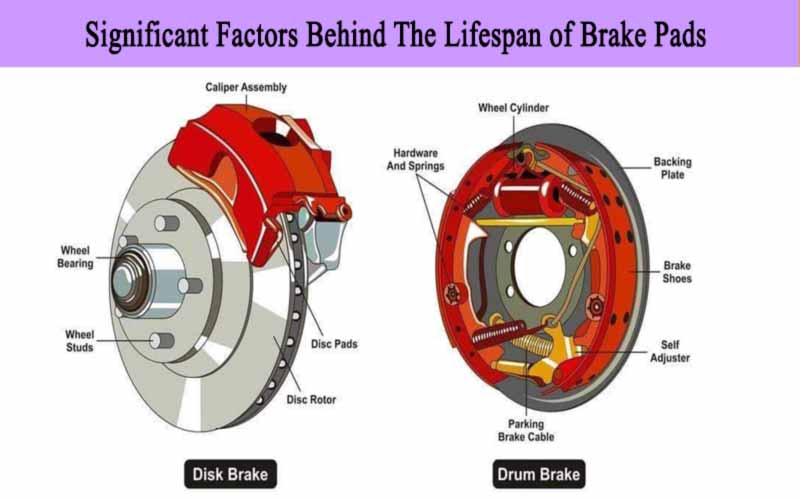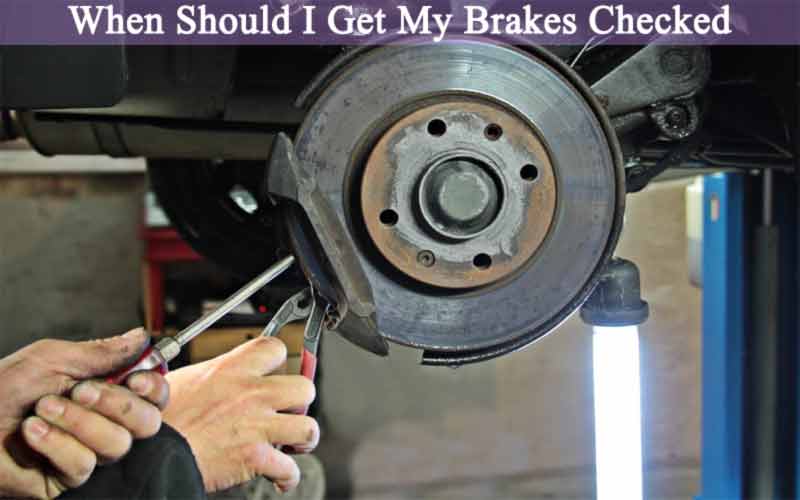How Long Do Brake Pads Last? (Significant Factors behind the Lifespan)
Brakes, the most crucial part of your car, play a vital role to help you avoid potential accidents. Consequently, you might be highly aware of the brake pads of your car. And when you think about the particular set of your brake pads, a question may spring up in your mind. The question is: How long do brake pads last?
Well, the answer to the question depends on an array of factors. Before discussing the factors in details, let’s get in touch with another well-known question:
How Long Do Brake Pads Last on Average?
To give you an idea, the average lifespan of a set of brake pads is between 25,000 and 65,000 miles. According to a bunch of savvy mechanics and professional engineers, it may even last for more than 65,000 miles in some cases.
Significant Factors behind the Lifespan of Brake Pads:
The Driving Place
You might be driving your car either on the motorway or around inner cities. Though you may think that driving around inner cities is suitable for your car, your thought is actually wrong. Driving a car on short rides around cities cost you more than that of long trips on the motorway.

Significant Factors of Brake Pads
In general, your brake pads last longer if you drive your car on the motorway. But what is the exact reason behind it?
Well, the answer is straightforward. Usually, there are many traffic lights, junctions, and roundabouts in cities. Therefore, you have to use your brake pads more often when you drive your car in a city.
On the other hand, your brake pads and rotors don’t get under pressure while driving on a motorway for a long journey. It will make the pads sustain for a long time.
The Weight You Are Carrying in Your Car
Getting surprised to hear this? You shouldn’t be indeed. The weight you carry in your car is another significant factor working behind the lifespan of your brake pads.
If you drive your car with four to five passengers or tow a caravan, it puts extra pressure on the braking pads. And this will ultimately lead the braking pads to lose sustainability.
What if your vehicle is lighter? If it is not loaded, the strains on the brake pads will be low. In this case, you don’t have to worry even if you stop your vehicle several times on your journey.
The Type of Your Brake Pads
The type of brake pads is another factor to take into consideration while answering the question: How long do brake pads last? The type of brake pads you are using in your car greatly affects the average lifespan of the brake pads. So, how long should brake pads last depending on their types?
First of all, you have to know the types of brake pads in this regard. There are, in fact, four types of brake pads out there. The types include organic, semi-metallic, metallic, and synthetic. Let’s learn about them:
- Organic brake pads, which are made from non-metallic fibers, do not last long since they are the cheapest in the market.
- Semi-metallic brake pads are a mixture of metals and organic materials. This type of brake pads lasts longer than organic brake pads.
- Metallic brake pads were usually used in racing cars in the past. Nowadays, they have lost appeal as advances have been made in organic and semi-metallic pads.
- Synthetic pads, which are also known as ceramic pads, are the most sustainable brake pads in the market. But these pads are highly expensive than other types of brake pads.
The Number of Miles You Drive
This is another significant factor working behind the lifespan of the brake pads of your car. But how does the number of miles you drive affect your brake pads?
The equation is simple! The more you drive, the more you use your brakes. And the more you use your brakes, the faster your brake pads wane.
In general, the front pads wanes faster than that of the rear pads. It is because the front has to deal with more of the braking load.
When Should I Get My Brakes Checked?
There are a few signs that will inform you whether your brakes need to be checked. The signs, however, include noise while braking, brake warning light, spongy feeling, and so on.

Noise While Braking
It does not matter whether you hear a squeal or grind from the brakes of your vehicle. You need to pay your attention whenever your brakes make an odd noise.
Try to check the brake pads of your car when you face noise problems. It is because most of the noises derive from the brake pads of a particular vehicle. There are some brake pads that make noise when they get worn. If your brake pads are of that kind, they will also make noises to warn you.
Brake Warning Light
Your car may have a computer-controlled braking system, which helps you differently. Basically, the warning light of the vehicle stays on when there is a problem in the braking system.
Though many people do not pay any heed to this light, you should be aware of this warning. Ignoring this light can cause you to fall in great danger.
Two possible reasons for staying the warning light on are a faulty sensor and a brake system failure. So, never delay when you see the brake warning light of your vehicle on. Try to check the brakes as soon as possible in such a case.
Spongy Feeling
Does your brake pedal cost you harder press to stop the vehicle? If the answer is “Yes”, there is a potential problem in your brake system. There could be a leak in the lines, or the brake pads might be worn out.
Even something else can happen with your brakes if you have to press the brake pedal harder. However, you should check your brakes in no time as soon as you face such a situation.
Other Signs
If your car pulls to the right or left at the time of braking, then there might be a problem in your brake. This kind of situation usually comes into light when the brake fluid of your car runs low. But this is not the only cause behind your car’s pulling to one side. To know the exact cause, get your brakes checked without any delay.
How Often Do Brake Pads Need Replacing?
Well, it depends! No one can accurately tell you how often your brake pads need replacing. In fact, it depends on various factors. For instance, brake pad thickness, jittery braking, and squealing noise help you realize whether you need to replace your brake pads or not.
In general, the brake pads of your car need to be replaced after you have driven about 50,000 miles. But never wait for reaching this mileage. If you face something unusual, get in touch with mechanics to check whether your brake pads need replacing.
To sum up, you should always be aware of the brake pads of your car. Inspect them regularly to see if there is any problem. And replace them when it is necessary. However, we think you don’t have to ask the question again: How long do brake pads last? It’s because you have got to know all the ins and outs of brake pads.

